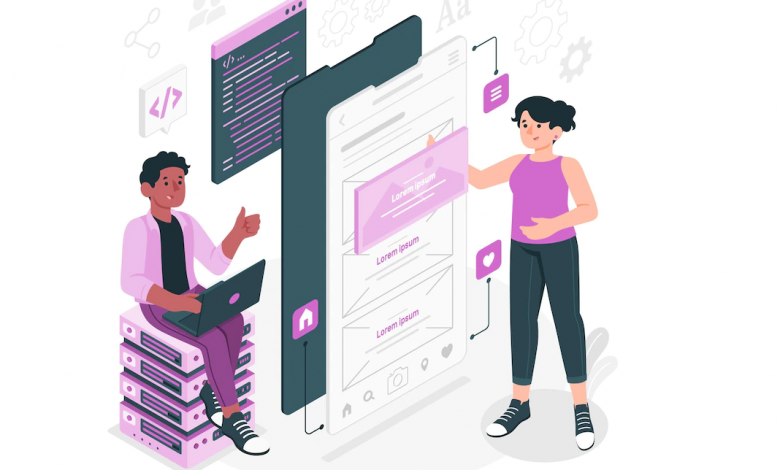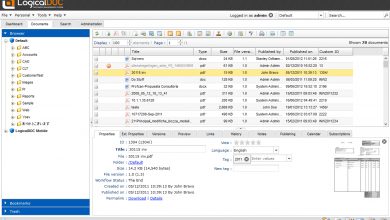Native Or Hybrid App- Best For Your Business?

For business who wishes to reign in this digital world, the idea of app creation is always a brilliant one. And identifying the key difference between a native application and a hybrid application is the first step business needs to take to move forward. It will help the business to understand which application is suitable to streamline the business process within budget. Let’s get into more details below.
What is a Native Application?
A native application is an application designed and developed specifically for a single platform to ensure the application takes full advantage of the device and OS where downloaded, like the camera, contact list, GPS, compass, and the list is endless. The apps are installed from the application store like Play Store for Android devices and Apps Store for iOS devices and accessed through the icons that appear on the home screen. Also, the native app uses the device notification feature to keep its users updated and can function without an internet connection.
The commonly used framework and languages for native app development are –
For iOS Apps
Framework- The iOS app developers require an XCode framework to develop apps for the iOS platform.
Languages- Languages like Swift language or Objective C are used to develop apps for the iOS platform.
For Android Apps
Framework- Android app developers need to use IDE aka, Android Studio, to build apps for the Android platform.
Languages- The Android app developers use programming languages like Java or Kotlin to develop an android app.
The Major Advantages of Native Applications are as follows-
- Great User Experience- As the app inherits the device OS interface, it offers a personalized user experience, allowing users to take actions they are well-acquainted with.
- Better Performance- As the apps are platform-specific, it functions smoothly after being installed.
- Better Security- Native apps offer top-class security in protecting users’ data, and the chances of glitches are less during app development.
- Allows Customization- The apps have complete access to the device features and OS, allowing the developers to develop solutions according to business needs. It also offers a high level of flexibility to the users.
- Easy Updates- With software updates app developers can implement new features to make the apps function efficiently.
The Major Disadvantages of Native Applications are listed below-
- Cost- The cost of app development and app maintenance is high compared to other cross-platform mobile app development.
- Time-Consuming- As the code written for one platform cannot be used for another one, the app development process is quite lengthy.
What is a Hybrid Application?
Hybrid App is just like any other app that is directly downloaded from the app store and installed on the device locally. The key difference between a hybrid app and another app is that- a hybrid app is developed by combining the native app elements, i.e. developed for platform-specific OS- Android or iOS, and web app elements i.e, the websites that function like an app, but are not installed locally, but needs an internet connection and a browser to function.
The web apps are deployed in a native app container. The app container connects with the mobile platform capabilities provided via a browser present in the app. The browser and several plugins that function at the backend are hidden from the end-user.
Hybrid apps are popular among app developers, as they need to write the codes only once yet, to make the app run across diverse platforms. But since the hybrid app codes are placed between the source code and the target platform, the transition from one page to another is slower than the native and web app version of the same app. Hybrid applications use popular frameworks like React Native, Xamarin, Ionic, etc.
The Top Advantages of Hybrid Applications are listed below-
- Low- development cost- Hybrid app development cost is comparatively lower than a native app or web app development. As the developers need to write the code once and make it applicable across multiple platforms, thereby reducing time and cost.
- Easy maintenance cost- As a hybrid app uses HTML code and doesn’t need software updates to produce a new app, its maintenance cost is low.
- Scalable- Hybrid apps can perform successfully across multiple platforms. Thus, a developer can use the same code across multiple OS they target. So app scaling is not time-consuming at all. Changes, if any, can be edited in the code directly.
- Less development time- The development time is less for a hybrid app, as compared to other apps of the same functionality. It saves the developers time by allowing them to write the code only once and make the app run on various platforms.
The Top Disadvantages of Hybrid Applications are as follows-
- Difficult to exploit platform-specific features- As the same code is used for all targeted platforms, the developers can’t exploit unique features or functions limited to that platform only. If they want to achieve performance like a hybrid app, they have to either install additional plugins or write a few extra codes specific to that platform.
- Restricted User Interface-The interface doesn’t give a native feel nor offers a seamless user experience.
- Slow performance- As the native app codes are inserted between the source code and the platform targeted, its performance slows down during page transition.
The Future of Mobility- Key Differences For Choosing the Right Type of Application
Below-mentioned are the key points where you need to choose what is best suited for your business and what will click the most with your target audience- native or hybrid.
Time to Develop and Market
While building any application takes the minimum time to position your brand and business in this competitive market. It is lucrative that your brand has the business opportunity, you can opt for both native or hybrid applications. When you need to build an app fast, these are some of the major key points you should keep in mind-
- The scope of the application in terms of the long-run and current market situation.
- The genre of the target market and demographic.
- The core APIs to be used within the application.
- Application performance
- Scalability
- Reliability and security
- User Interface(UI) and User Experience(UX).
Takeaway-
Native applications take a longer time to develop than hybrid applications. But these types of applications deliver an intuitive, responsive user experience.
Whereas, Hybrid applications take less time to develop and provide robust performance in terms of functionality. These types of applications have high-end security with top-notch user experience (UX).
If you need an application with perks like- quick development, takes less time to market, and has cross-platform compatibility, then a hybrid application development is your answer. For that, you need the support of the professional app developers of the top mobile application development company in India.
Performance of the Mobile Application
When it comes to performance level, applications need to be faster to load, with optimized and SEO-friendly integration that has an effortless user experience. Native applications have a better performance review than hybrid applications. It is because native apps are more reliable in their design flow and content. They provide the users with a flawless user experience as all the content, structure, and visual elements are already on mobile devices.
Whereas, hybrid applications only have the wrapper, which gets downloaded when the user installs the application. Here, most of the time, the data gets downloaded from the server when a query is made.
Takeaway-
When it comes to performance, native applications are the best and keep the hybrid applications behind. The native apps optimize performance and user experience flawlessly.
User Experience/ Design Flow
The user experience for any application is of utmost importance to have control to make a leader in this competitive market. Any application needs to have a robust user experience that intakes the following points-
- Adaptability
- Design layout
- Modal structure
- Navigation
- Interactivity
- Feedback
- Animation
- Typography
- Color contrast
- In-app branding
Native applications are designed specifically following the operating systems(OS). These types of applications integrate closely with the features and functionality which are available in mobile devices with astounding user experience.
Whereas, hybrid applications cannot offer a unique platform-specific experience for all operating systems.
Takeaway-
Native applications are preferred less over hybrid applications as the experience is not limited to any platform or operating system (OS).
Conclusion
Now that you have a clear idea about the native app and hybrid apps, get a mobile application designed and developed by the top app development company in India, according to your business need, budget, and project timeline.







